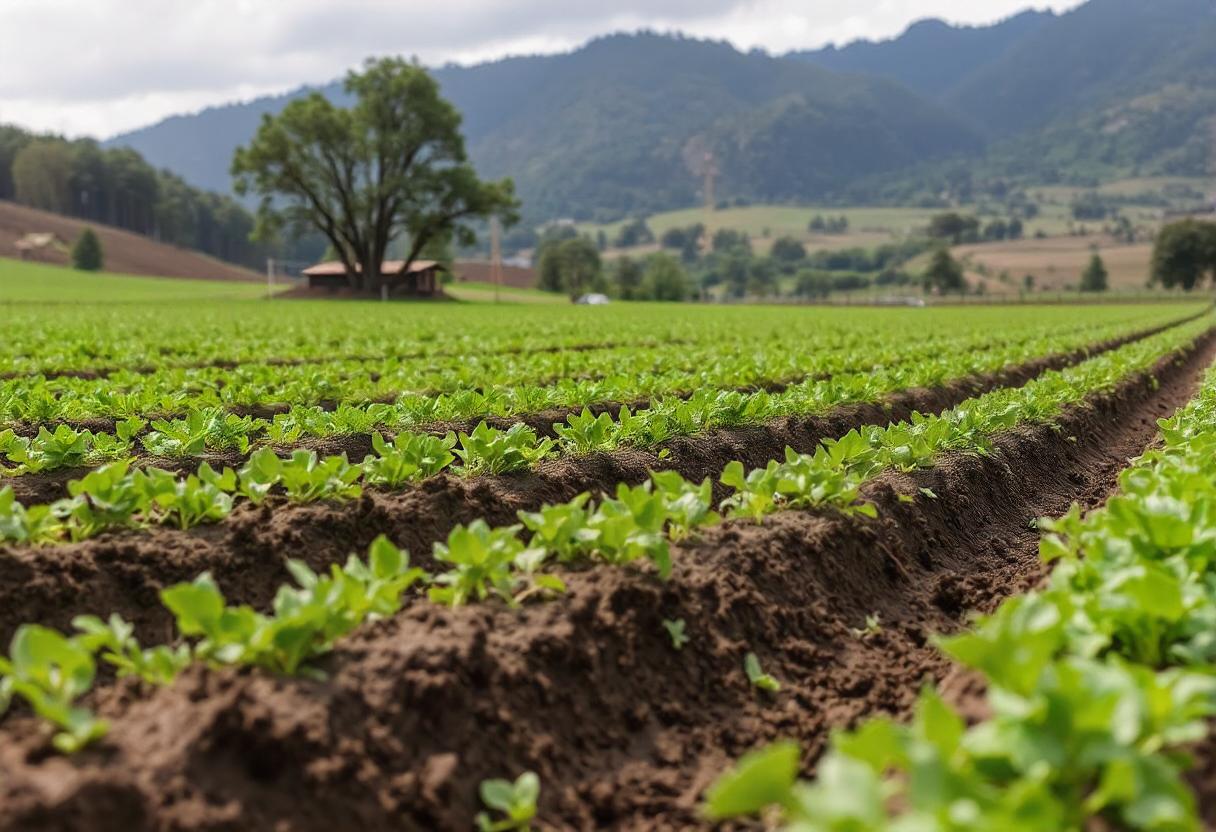
Carbon sequestration in agriculture refers to the process of capturing and storing atmospheric carbon dioxide (CO2) in soil, plants, and other agricultural ecosystems. This practice helps mitigate climate change by reducing the amount of CO2 in the atmosphere. Agriculture plays a critical role in global carbon cycles, and understanding how to enhance sequestration in farming systems is vital for environmental sustainability.
Importance of Carbon Sequestration
Agriculture contributes significantly to greenhouse gas emissions, but it also has the potential to become a carbon sink. Carbon sequestration can be achieved by increasing organic matter in soils and promoting practices that support long-term carbon storage. Enhancing sequestration in agriculture helps improve soil health, water retention, and crop yields while mitigating the adverse effects of climate change.
Methods of Carbon Sequestration in Agriculture
There are several ways to sequester carbon in agricultural systems, including:
- Soil Management Practices: Improving soil health through methods like cover cropping, reduced tillage, and organic farming helps increase the organic carbon content in soils. By enhancing microbial activity and reducing soil erosion, carbon can be stored more effectively in the soil matrix.
- Agroforestry: Integrating trees and shrubs into farmland is a powerful method for carbon capture. Trees store carbon in their biomass while also promoting biodiversity and protecting crops from climate extremes.
- Crop Rotation and Diversity: Implementing diverse crop rotations, including the use of nitrogen-fixing legumes, helps promote soil carbon storage by improving soil structure and reducing the need for synthetic fertilizers.
- Biochar Application: Biochar, a stable form of carbon produced through pyrolysis, can be applied to soils to enhance carbon storage. It helps retain moisture, improve nutrient availability, and sequester carbon for hundreds of years.
Challenges and Limitations
While carbon sequestration offers numerous benefits, several challenges and limitations hinder its widespread adoption. Measuring and monitoring soil carbon levels over time can be difficult, as the carbon sequestration potential varies based on soil type, climate, and farming practices. Additionally, financial incentives and policy frameworks supporting sequestration efforts are still evolving, and farmers may face barriers related to cost, education, and infrastructure.
Role of Policy and Incentives
Government policies and market-based incentives play a key role in promoting carbon sequestration in agriculture. Carbon credits and payment schemes that reward farmers for adopting sustainable practices are becoming more common. These financial mechanisms encourage farmers to implement techniques that contribute to carbon capture while providing additional income streams.
Future Prospects
As the urgency of addressing climate change increases, carbon sequestration in agriculture will likely gain more attention. Advances in technology, research, and farming methods will continue to improve sequestration rates. Innovations like precision agriculture, remote sensing, and carbon accounting tools will help farmers optimize their practices and maximize their carbon storage potential.